Marco Rubio earns endorsements from 32 Alabama lawmakers
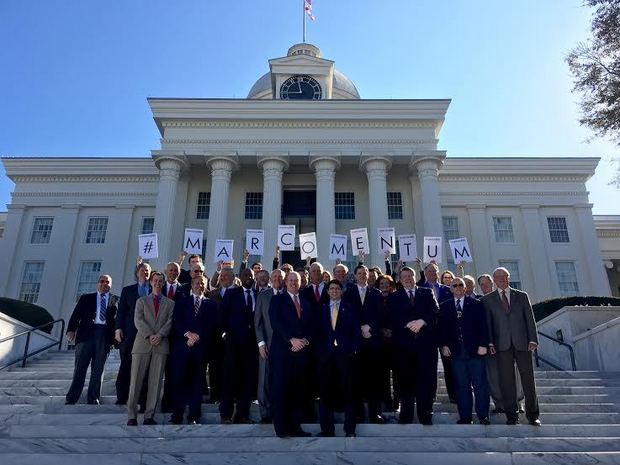
Florida’s junior U.S. Sen. Marco Rubio is counting on neighbor state Alabama to show its strong support Tuesday in its Republican presidential primary. Hoping to build what Rubio’s team calls “Marcomentum” going into the weekend, Rubio rolled out endorsements from 32 Alabama elected officials Thursday, just days ahead of the March 1 primary. On the steps of the state capitol in Montgomery, Alabama state campaign chairman and Alabama state Rep. Will Ainsworth along with a group of his colleagues gathered to show their public, unified support for Rubio. “Our party needs Marco Rubio and I am so happy that all these leaders across our state are joining with me in supporting him,” said Ainsworth. “Now that this field has started to winnow, it’s clear that any vote not for Marco is a vote for Donald Trump. We need our nominee to be a serious conservative that can win in November and that is what Marco Rubio will be.” Fellow Rubio supporter, Alabama State Sen. Slade Blackwell agreed. “I am proud that I can stand beside so many influential Alabama leaders today as we announce our support for Marco Rubio,” Blackwell said. “Marco needs our support at the polls on March 1 because we need a nominee that can beat the Democrats in the fall and take back the White House so we can solve our nation’s problems through conservative principles.” Here’s the full list of Alabama state legislators supporting Rubio: Senate Majority Leader Gregg Reed State Senator Greg Albritton State Senator Slade Blackwell State Senator Steve Livingston State Senator J.T. “Jabo” Waggoner State Representative Will Ainsworth, State Chairman for Rubio Campaign State Representative Mike Ball State Representative Paul Beckman State Representative Chris Blackshear State Representative DuWayne Bridges Sr. State Representative K.L. Brown State Representative Mack Butler State Representative Terri Collins State Representative Danny Crawford State Representative David Faulkner State Representative Matt Fridy State Representative Danny Garrett State Representative Lynn Greer State Representative Jim Hill State Representative Mike Hill State Representative Mike Jones State Representative Nathaniel Ledbetter State Representative Jimmy Martin State Representative Jim Patterson State Representative Bill Poole State Representative Clay Scofield State Representative David Sessions State Representative Randall Shedd State Representative Harry Shriver State Representative Kyle South State Representative Jack W. Williams State Representative Jack “J.D.” Williams
Marco Rubio donor meeting raises possibility of brokered convention

Facing unsteady ground as Super Tuesday approaches, Marco Rubio is bracing for the prospect of a brokered Republican Convention in Cleveland this July. CNN reports on a closed-door meeting with about 200 Rubio supporters and donors Wednesday evening, where the campaign considered options as a stopgap measure against the nominations of either GOP front-runner Donald Trump or Ted Cruz. According to two people at the private event, Terry Sullivan, Rubio’s top adviser, used a PowerPoint presentation and question-and-answer session to outline two possibilities for the Florida senator to secure the Republican nomination. “One is somebody — Trump or Rubio — wins enough primaries to sew up the nomination in advance of the convention,” one attendee told CNN. “The other is that nobody does, and the two candidates go to the convention.” The campaign is working overtime to convince potential donors that Rubio is the viable establishment alternative to either Trump or Cruz, and that he has a legitimate path to victory. Yet Trump is the one approaching the Super Tuesday primaries March 1 as the undisputed Republican front-runner, with decisive wins in New Hampshire, South Carolina and Nevada. Rubio, in comparison, has yet to win a single state. Although only hypothetical at this point, a brokered convention seems increasingly conceivable, particularly in light of Rubio’s Wednesday meeting. Nevertheless, the attendees said Sullivan remains confident that Rubio would win in Florida, despite recent polling showing him lagging behind Trump. One major question shadowing the entire event was whether giving to the Rubio campaign would not be a waste of money, as it was with for Jeb Bush, who exited the race last week after a poor showing in South Carolina.
State Senate OKs minimum wage uniformity, blocks Birmingham increase

The Alabama State Legislature is pushing back against cities hoping to set their own minimum wage standards. Thursday, the Alabama Senate voted in favor of HB174 — also known as the Alabama Uniform Minimum Wage and Right to Work Act — a bill that would block cities from setting individual minimum wage rules. The Alabama House already approved the bill. The measure was approved by a 23-10 vote, mainly on party lines. “Senate Republicans deserve credit for championing and affirming that free enterprise creates opportunity for all,” said Sen. Jabo Waggoner (R-Vestavia Hills), a sponsor of the bill. “By passing the Alabama Uniform Minimum Wage and Right to Work Act, we are protecting job creators from having to deal with dozens of different minimum wages and labor rules that would vary from city to city.” The bill, which went directly to Gov. Robert Bentley for his signature, prevents local governments from instituting a minimum wage and requires all cities and counties in Alabama to use the federal wage standards as a measure. In addition, the legislation cements Alabama as a right-to-work state by giving the Legislature alone authority to establish uniform employment policies and regulations of collective bargaining. “We want businesses to expand and create more jobs – not cut entry-level jobs because a patchwork of local minimum wages causes operating costs to rise. Our actions today will create predictability and consistency for Alabama’s economy, which benefits everyone,” Waggoner said. The Senate’s action comes amid a battle between Birmingham and the Alabama Legislature over minimum wage standards. Birmingham City Council voted Tuesday to increase the city’s minimum wage to $10.10 an hour, effective the next day. In August, council originally had voted to begin the $10.10 minimum July 2017. Bentley signed the bill less than an hour after the vote, effectively blocking the Magic City’s efforts.
Robert Bentley’s appointments office stays busy in February
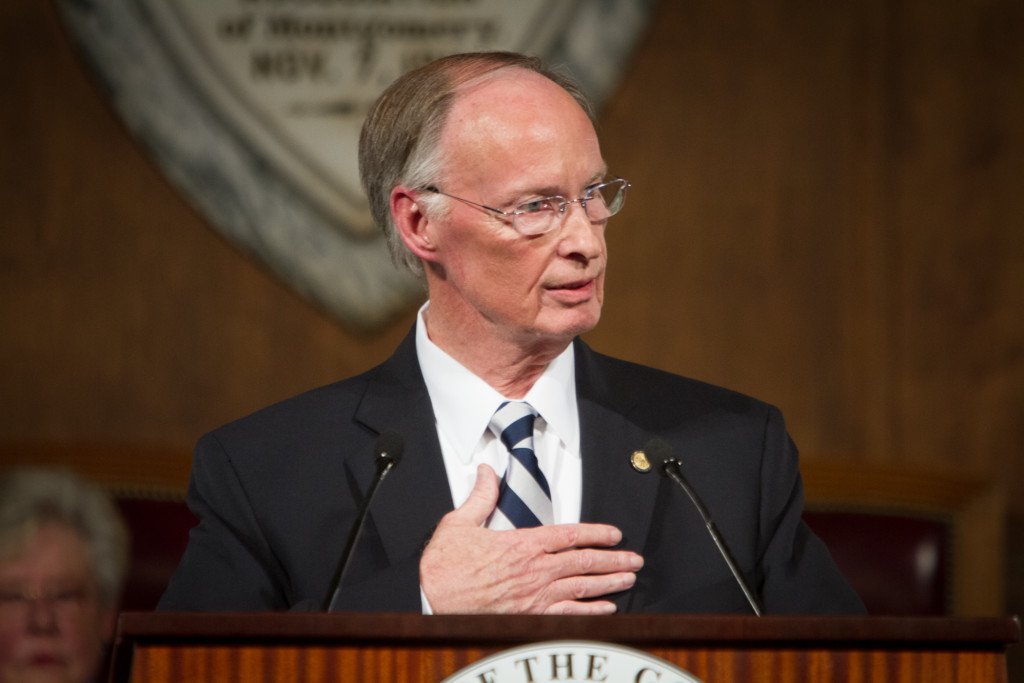
Governor Robert Bentley‘s appointments office is busy these days. Here are the governor’s latest appointments, 17 people to 10 boards, commissions and committees. Information on open board positions is on the appointments webpage. Alabama Licensure Board for Interpreters & Transliterators Ms. Nancy L. Hayes Mr. Samuel F. Feibelman Women’s Health Steering Committee Ms. Robin DeMonia Craft Training Board Mr. Jerry Grissom Alabama Crime Victims Compensation Commission Mr. William G. Sharp Course of Study Committee: Arts & Foreign Languages Carol Anne Braswell Department of Mental Health Board of Trustees Honorable Wes Allen Board of Examiners of Assisted Living Administrators Ms. Tara Odom, ALA Early Intervention Coordinating Committee Ms. Gina Salvagio Dr. Mary Blankson Yada Horace Ms. Susan Bradt Ms. Rachael Harrison Ms. Lori Skidmore Ms. Tametria Conner Athletic (Boxing) Commission Mr. Larry Bright Advisory Board of Broadband Ms. Jane Knight
Legislature approves “Ava’s Law” to strengthen child abuse penalties

The Alabama House voted to grant final approval to a bill that would increase penalties on aggravated child abuse offenders on Thursday. The bill – dubbed “Ava’s Law” by sponsor Sen. Tom Whatley, in honor of a four-year-old girl who died at the hands of her abuser – would allow for harsher penalties in cases when a victim unintentionally dies due to child abuse. Current law allows such cases to be prosecuted only to the limits of manslaughter, which carries a 20-year maximum sentence. “This law is about protecting children, the most vulnerable among us,” said Whatley, a Republican from Auburn. “Abusing children is a serious crime, and made even more heinous when a child dies as a result. This bill closes a loophole in the law and establishes a harsh penalty that fits the crime.” The bill is named for Ava Zapata, a Lee County girl who died in May 2012 after suffering abuse by her mother’s boyfriend. Under the proposed law, aggravated child abuse could now be elevated to the level of capital murder by prosecutors if it results in a minor’s death. “I am grateful to Senator Whatley and District Attorney Robbie Treese for their work on this legislation,” said Jessica Ventiere, Assistant District Attorney for Lee County. “Ava’s Law bridges the gap between capital murder and manslaughter. It offers an option stronger than manslaughter when the evidence shows intent to abuse but not necessarily the specific intent to kill, which is required to prove capital murder.” The bill, passed by the Senate earlier this month, now moves on to the desk of Gov. Robert Bentley for his signature and enactment into Alabama state law. Senate Republicans said they made Ava’s Law a priority as part of its “Protecting Families & Children” agenda this legislative Session.
Clay Scofield: Here’s my plan so future generations enjoy our state parks

Alabama’s State Parks are treasures that should be cherished and protected for future generations. Unfortunately, over the past few years, the parks system has suffered from multiple budget transfers to fund other General Fund agency shortfalls. I have a plan that will help to permanently fund our state parks and keep these God-given resources available for future generations. Our state’s General Fund has faced great challenges the past few years in terms of identifying adequate funding for state services. To fill those shortfalls, funds were transferred from the Department of Conservation and Natural Resources (DCNR) and the State Parks to fund other areas of government. Since 2012, $30 million has been transferred from the DCNR, and $15 million of this came directly from the parks system’s accounts. I have a plan to stop this unfair practice of taking money directly from our parks to fund other areas of government. I’ve proposed a constitutional amendment that would allow citizens to vote this November to protect Alabama State Parks’ funding forever. This constitutional amendment would prohibit any further transfers from the parks system’s funds to the state’s General Fund. The people of Alabama deserve the opportunity to have a voice about the future of their State Parks. Alabama State Parks have always operated on a slim budget and are unique. Unlike other state agencies, which receive appropriations from the state’s General Fund each year, state parks earn most of their own funds through guest fees. Unfortunately, millions of dollars made at the parks have been transferred to other state agencies over the past few years. Half of the more than 4.5 million visitors to Alabama State Parks come from out of state. The parks provide an economic boost of more than $375 million, a significant return on investment compared with most other state agencies. The Alabama State Parks System is also unique in the minimal support received from tax dollars. The parks generate more than $30 million from guest fees each year, which makes up 80 to 90 percent of the parks system’s annual budget. Other state parks systems in the Southeast, and across the country, receive considerable contributions from taxpayers. In Florida, Georgia and Mississippi, state parks’ revenues account for only about 65 percent of the total cost of operating the parks. In Tennessee, less than 45 percent of the operating costs of the parks are made at the parks; the rest comes from tax dollars. Other states heavily contribute to the success of their parks system with tax dollars. In Alabama, we take from the parks to fund other government agencies. The continued loss of this revenue has caused our parks system to begin implementing emergency contingency plans across the state. What does that mean? To cut costs, the system has been forced to close five parks. There are now seasonal closures for facilities at a number of other parks, and one park has transitioned to day-use only and made other operational changes to save money. In addition, it is likely the fees for services already offered at our State Parks will have to be increased in the near future. Again, this has not been caused by anything the State Parks are doing wrong or inefficiently. As a matter a fact, even after terrible natural disasters — such as Hurricane Ivan, which destroyed the state’s most profitable park on the Gulf Coast, or the tornadoes of 2012 that ripped through the campground at Guntersville — the parks’ staff and its supporters rallied to ensure the parks system continued to prosper even during these difficult times. Like many Alabamians, I have spent countless hours making memories in our State Parks, and I want to ensure that all families in the state can continue this legacy. I’ve always been amazed at the wide array of people who use and enjoy our parks. They are people of all interests and income levels – state residents and tourists alike. It’s time we let the people of Alabama decide if our parks will be a priority. I have no doubt the outcome will be an overwhelming “Yes.” Before this measure can reach the citizens on the ballot in November, the Legislature must first vote in favor of this amendment to protect our parks funding. Reach out to your local state representative and state senator and ask them to support this constitutional amendment. • • • Clay Scofield is a state senator from Guntersville, Alabama. He represents the 9th district. He represents Blount, DeKalb, Madison and Marshall counties.
Martin Luther King III, civic leaders launch “No Voter Left Behind” initiative
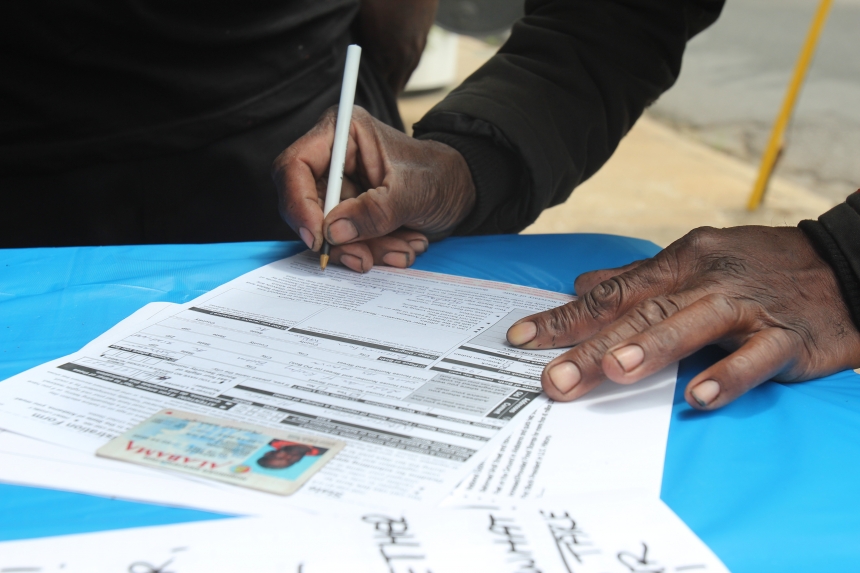
A group of civic-engagement leaders – including Martin Luther King III, son of the late civil rights crusader – has a plan to make sure unlikely voters and those without photo IDs aren’t turned away from the polls this year. “No Voter Left Behind” aims to push back against laws in 34 states that impose more restrictions, which many critics call “voter suppression.” Led by the Drum Major Institute, it’s chosen Alabama to launch the program that tells voters about their rights. “Everyone wants to know who will win this primary or the next, who will win the nominations, and who will win the final contest in November. But if citizens who have the right to choose their leaders are unable to cast a ballot, then we will certainly know that regardless of who wins the election, America will have lost,” King said. A news release says the initiative will aid potentially disenfranchised voters by: • Raising Awareness of the State-by-State Voter ID requirements and laws • Launching a nation-wide toll-free hotline (855-VOTE-2016) that citizens can call for assistance • Devoting physical resources, including assisting voters in getting to their local Election Commission and DMV offices to obtain photo ID Also taking part in the effort are former U.N. Ambassador Andrew Young and Drum Major Institute co-founder, New York attorney William Watchel, “The responsibility of casting a vote for president of the United States places a burden on the conscience of every American to choose wisely. But there should not be physical burdens impeding citizens from fulfilling their civic duty and exercising the right to vote. We remain committed and will do whatever it takes to lessen the burden on all Americans to vote, including by ensuring that every citizen can comply with voter ID laws,” said Young, U.N. Ambassador under President Jimmy Carter and later Atlanta’s mayor. “The lack of a little plastic card should not prevent anyone from exercising their fundamental right to vote. Having proper identification is empowering – even beyond the basic civil right of voting – and we are devoted to helping citizens who are on the outside looking in be equal participants in American opportunity,” Watchel said. The No Voter Left Behind effort was profiled in a segment of “Last Week Tonight,” hosted by John Oliver. Here’s the segment:
Marco Rubio to headline Samford University forum Saturday

Republican U.S. Sen. Marco Rubio is set to be the solo headliner at Samford University’s Republican presidential candidate forum Saturday after fellow presidential candidate Sen. Ted Cruz cancelled. Three other Republicans in the race, businessman Donald Trump, Ohio Gov. John Kasich and pediatric neurosurgeon Ben Carson are also skipping the event. The forum is one of the last opportunities for candidates to plead their case to Alabama voters ahead of Super Tuesday next week, when Alabama and a dozen other states hold nominating elections. Event organizer Yellowhammer News said the sold-out event will still go on as planned, despite Rubio being the only candidate in attendance. Cruz’s cancellation came down from a political consultant not long after a new poll put out by Birmingham-based consulting firm Master Image showed the Texas senator in a third place among Yellowhammer State voters. The poll, released Wednesday, put Trump in the lead with 36 percent, followed by Rubio with 19 percent. Cruz got 12 percent support, with Carson taking 8 percent and Kasich landing in last place with 7 percent. About 17 percent of the 1,556 Alabama Republicans polled said they were still undecided. The poll may foreshadow a disappointing Tuesday for Cruz, whose campaign strategy relies on picking up delegates in the “SEC Primary” states, where evangelicals have a larger role at the polls. The junior senator from Texas had 17 percent support among Alabama Republicans in January, but his numbers had slipped to around 13 percent this month.
Harper Lee “would be extremely upset” with Donald Trump rhetoric, “Scout” says
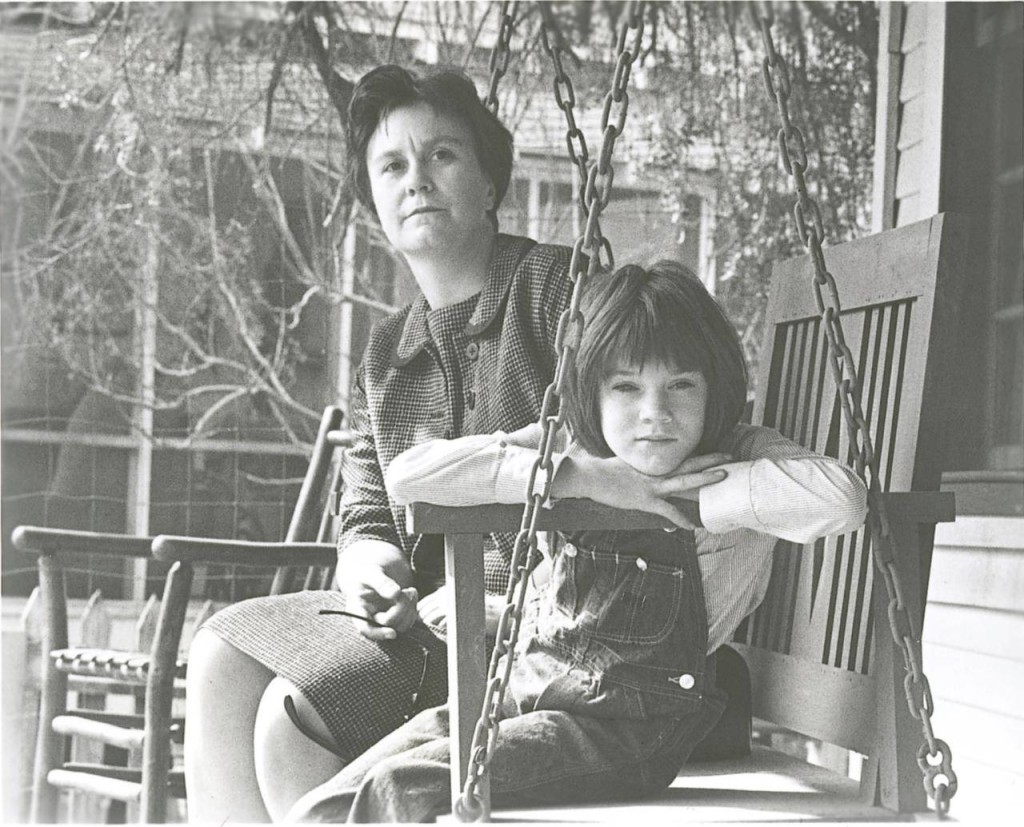
The actress who portrayed the iconic role of Scout onscreen in Harper Lee‘s classic tale “To Kill A Mockingbird” decried the “inflammatory and divisive” rhetoric of Donald Trump, saying the late Lee would not have approved, either. “I think she would be extremely upset with some of our politicians who are not being realistic, and who are pulling this country apart,” said Mary Badham, who was 10 when she appeared as “Scout” with Oscar winner Gregory Peck in the 1962 film. The Pulitzer Prize-winning Lee, who passed away this past Friday at 89, became close to Badham in the final years of her life, she told WJCT. Badham will make a couple of North Florida appearances on Saturday (details below). She speaks regularly across the country about the book and film’s timeless themes of tolerance and compassion in the face of bigotry. “We’re a country made up of a lot of different kinds of people, and that’s part of what makes us very strong. We have to learn to come together as a country, and not listen to racism and bigotry. It’s sad for me because we’ve come so far, and yet there are still some of us who are stuck in the Dark Ages. And I don’t want to go back there.” “This is not just a black-and-white, 1930’s race issue. This is global. This is bigotry and racism in all its forms. We have to fight against that continually. The crux of that is education. If we fail to educate our population, then ignorance takes over. “I’m just hoping the American public will do their homework in this next election, and really pay attention to the ugliness that’s happening in our political situation, and try to go for the high road. We’ve never been in a more dangerous situation than we are right now. “I’m thinking mostly of Donald Trump. He is so inflammatory and so divisive, he would not be good for this country.” Badham will appear 10 a.m. Saturday in Balis Park and the San Marco Bookstore, where there will be book signings for “To Kill A Mockingbird” and Lee’s 2015 release of “Go Set A Watchman.” The copies will be signed by both Badham and Harper Lee. Saturday evening, she’ll host a talk and screening of “Mockingbird” at the St. Augustine Amphitheatre. Both events are free.
AP Poll finds shaky support for Bernie Sanders’ “Medicare for all”

At first blush, many Americans like the idea of “Medicare for all,” the government-run health system that’s a rallying cry for Democratic presidential candidate Bernie Sanders. But mention some of the trade-offs — from higher taxes to giving up employer coverage — and support starts to shrivel. That’s the key insight from an Associated Press-GfK poll released Thursday. The survey also found that people’s initial impressions of Sanders’ single-payer plan are more favorable than their views of President Barack Obama‘s health care overhaul. A slim plurality of 39 percent supports replacing the private health insurance system with a single government-run, taxpayer-funded plan that would cover medical, dental, vision and long-term care, with 33 percent opposed. Only 26 percent say they support Obama’s hard-won health care law. Yet it’s only like an air kiss for “Berniecare.” Asked whether they would continue to support Sanders’ plan if their own taxes went up, under a third of initial supporters of the plan would keep backing it. About four out of 10 flipped to opposition. About the same share of initial backers would ditch single-payer if it meant that people had to give up employer coverage. Twenty-eight percent would continue to support it. Higher taxes and an end to employer coverage are both a given under the Sanders plan, which would replace private coverage with a taxpayer-funded program, while also offering more generous benefits such as no deductibles and no copayments, as well as coverage for long-term care. “That’s pie in the sky,” said Patricia Combs, a retired junior-high math teacher from Springboro, Ohio. “It sounds really good, but I don’t think it’s attainable … people would complain about their taxes being raised.” Elizabeth Medina of Chicago, an office manager not currently working, said she worries that quality would slip. “Overall it sounds terrific,” she said. “Yeah! Let’s go for it! But Europe and Canada have their problems with the single-payer system … it’s subpar.” Such second thoughts over far-reaching policy proposals are common, said Robert Blendon of the Harvard T.H. Chan School of Public Health, who tracks public opinion on health care. For example, a “flat tax” may sound appealingly simple as millions of people assemble their W-2 forms, 1099s, and lately those new health insurance forms for the annual tax-filing ritual. But it gets tricky for flat-tax advocates when they have to decide which popular tax deductions to eliminate and which to keep. “People say they believe in a principle, but when you describe the policy, it often loses support because they don’t like that there are side effects,” Blendon said. The poll found increasing doubts about single-payer health care when other potential consequences are considered, such as slower availability of new drugs and treatments, and longer waits for non-emergency services. Unlike higher taxes and having to give up employer coverage, those are not automatic consequences of converting to a government-run system. But such concerns would surely be raised as a President Sanders tried to lead the “political revolution” he promises. The poll found that 51 percent of initial single-payer backers would switch to opposition if it took longer for new drugs and treatments to become available. Only 14 percent would continue to support the plan. Such an outcome could happen if drugmakers were required to prove that new medications are therapeutically superior to existing ones. The current standard is that new drugs be safe and effective. Additionally, 47 percent of initial supporters would reconsider if “Medicare for all” meant longer wait times for non-emergency medical services. That could happen if budget-conscious administrators encouraged doctors and hospitals to be parsimonious in using high-tech imaging. Only 18 percent of poll respondents would continue to support the plan in that case. Overall, the poll found that health care remains a top issue for Americans, with three-fourths calling it extremely crucial or very important. Health care ranked behind the economy but ahead of foreign policy concerns as well as domestic issues like income inequality. Memo to those following the Republican presidential primary: Most people doubt that “Obamacare” will be repealed even if the GOP wins the White House. Forty-nine percent say the Affordable Care Act will be kept in place with changes, whether major or minor. Another 6 percent say a Republican president will not be able to make any changes to Obama’s law. “A lot of people who couldn’t have health care before now have health care, so I don’t think you are going to be able to just turn around and strip all those people of their health care,” said Lillian Duren, a recently retired psychiatric emergency nurse from Brooklyn, New York. “You need to fix what doesn’t work and keep moving.” The Republican presidential candidates have promised to repeal the health law, but they haven’t detailed how they would replace it. • • • The AP-GfK Poll of 1,033 adults was conducted online Feb. 11-15, using a sample drawn from GfK’s probability-based KnowledgePanel, which is designed to be representative of the U.S. population. The margin of sampling error for all respondents is plus or minus 3.4 percentage points. Respondents were first selected randomly using telephone or mail survey methods, and later interviewed online. People selected for KnowledgePanel who didn’t otherwise have access to the Internet were provided access at no cost to them. • • • Republished with permission of the Associated Press.
Donald Trump takes 17-point lead in new state poll

With the SEC Primary less than a week away, billionaire businessman Donald Trump has a commanding lead in the Yellowhammer State, according to an independent poll of Alabama’s Republican presidential primary. Master Image, a Birmingham-based Republican consulting firm, released a poll Wednesday showing Trump with 36 percent, Florida Sen. Marco Rubio at 19 percent, Texas Sen. Ted Cruz at 12 percent, former neurosurgeon Ben Carson at 8 percent and Ohio Gov. John Kasich at 7 percent, with undecided voters accounting for another 17 percent of those polled. “Trump’s popularity in Alabama continues the trend we see elsewhere,” said president and owner of Master Image Inc. Joe Sanders. “Trump’s numbers in Alabama appear to be a few points lower than other Southern states, but in line with what should happen on March 1, considering almost one-in-five voters remain undecided.” The poll, first reported by the Daily Caller, was conducted Tuesday of 1,556 Alabama Republicans with a 4.2 percent margin of error. Rubio is scheduled to visit both Birmingham and Huntsville Saturday. Trump will be in Huntsville on Sunday. No other GOP candidates are currently scheduled to visit the state ahead of Tuesday’s primary election.
Debate another chance for Marco Rubio, Ted Cruz to try to slow Donald Trump
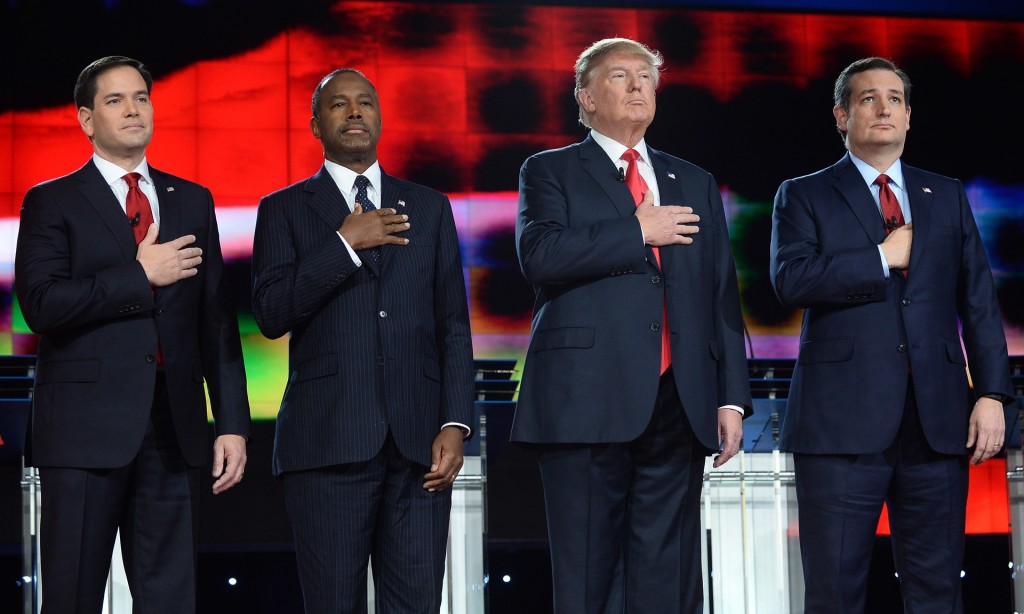
With Donald Trump‘s grasp on the Republican presidential nomination tightening, the billionaire businessman’s rivals get one more chance to challenge the GOP front-runner on the debate stage before next week’s slate of Super Tuesday contests. The situation is likely more dire for the other GOP candidates than they would like for voters to believe. Yet Sens. Marco Rubio and Ted Cruz have so far shown little willingness to take on the former reality television star when the national spotlight shines brightest. That could change Thursday night in Houston. “The vast and overwhelming majority of Republicans do not want Donald Trump to be our nominee,” Rubio told NBC, suggesting that Trump is winning only because the other candidates are splitting the majority of the electorate. For his part, the New York billionaire predicted the relative civility between Rubio and himself is about to disappear. The ninth Republican debate of the presidential campaign will take place just a few days before 11 states hold GOP elections that will either cement Trump’s dominance, or let his rivals slow his march to his party’s presidential nomination. “Time still exists, but not much,” said Liz Mair, a Republican operative leading one of the anti-Trump movements. “The strategy of ignoring the front-runner is not working. Cruz and Rubio need to tag-team to cause Trump problems.” How they do so is still to be determined. To date, Trump has proved largely immune to traditional political attacks, something he reveled in on Wednesday. “I seem to have a very good track record when to do go after me,” the New York real estate mogul told NBC. The task is made more complicated by the shift from single-state campaigns to a new phase of the race, where the candidates must compete across several states at the same time. Next Tuesday features voting in a mix of states that includes Texas, Georgia, Arkansas, Massachusetts and Virginia, with more to come in the weeks after. “Now these campaigns are in the position of having to use debates to try and shape or change voter perceptions across more than a dozen states in the space of 18 or 19 days,” said Republican strategist Kevin Madden. “That’s a daunting task.” Trump won Nevada’s presidential caucuses on Tuesday with more than 45 percent of the vote, scoring his third consecutive primary victory in dominant fashion. Rubio edged out Cruz for runner-up for the second consecutive race, with Ohio Gov. John Kasich and retired neurosurgeon Ben Carson far off the pace. As each seeks to become the Trump alternative, Cruz and Rubio have significant liabilities of their own. Cruz comes into the debate at the weakest point of his presidential campaign after a staff shakeup and three consecutive third-place finishes. The Texas senator ousted a senior aide on Monday after the aide promoted an inaccurate news report that Rubio had condemned the Bible during a chance encounter with Cruz’s father. The aide’s dismissal helps legitimize Trump and Rubio charges that Cruz has been running an unethical campaign. Even while vulnerable, Cruz signaled an aggressive stance heading into the debate. He lashed out at Trump and Rubio as “Washington dealmakers” while talking to reporters in Houston on Wednesday. Rubio, Cruz said, had worked with Democrats to craft an immigration overhaul, while Trump has given money to Democrats and backed their priorities at times in recent years. “I don’t think the people of Texas and I don’t think the people of this country want another Washington dealmaker to go and surrender more to the Democrats, giving in to the failed liberal agenda,” Cruz said. Rubio, meanwhile, is just one debate removed from a primetime meltdown. The Florida senator repeated himself several times in a New Hampshire debate less than three weeks ago, triggering what he now calls “the New Hampshire disappointment.” He avoided a similar mistake in the subsequent debate, but critics in both parties will be laser-focused on anything that suggests the 44-year-old legislator isn’t sufficiently prepared to move into the White House. Rubio has been reluctant to talk about Trump by name, but stepped up his aggressiveness Wednesday, criticizing Trump for what he called a failure to strongly oppose the President Barack Obama‘s health care overhaul. He also said “the front-runner in this race, Donald Trump, has said he’s not going to take sides on Israel versus the Palestinians because he wants to be an honest broker.” Rubio said there was no such thing, “because the Palestinian Authority, which has strong links to terror, they teach little kids, 5-year-olds, that it’s a glorious thing to kill Jews.” Emboldened by the recent departure of former Florida Gov. Jeb Bush from the race, Rubio has fresh momentum after two consecutive second-place finishes and winning over a rash of endorsements from Republican leaders. The latest came Thursday from Tennessee Gov. Bill Haslam. But after eight debates, it’s unclear what sort of approach will work against Trump. As his resume would suggest, he’s proven to be a master showman on primetime television. “It seems that the Trump people like Trump no matter what he says,” said Republican strategist John Feehery. “This debate is all about who is the Trump alternative.” Republished with permission of the Associated Press.


